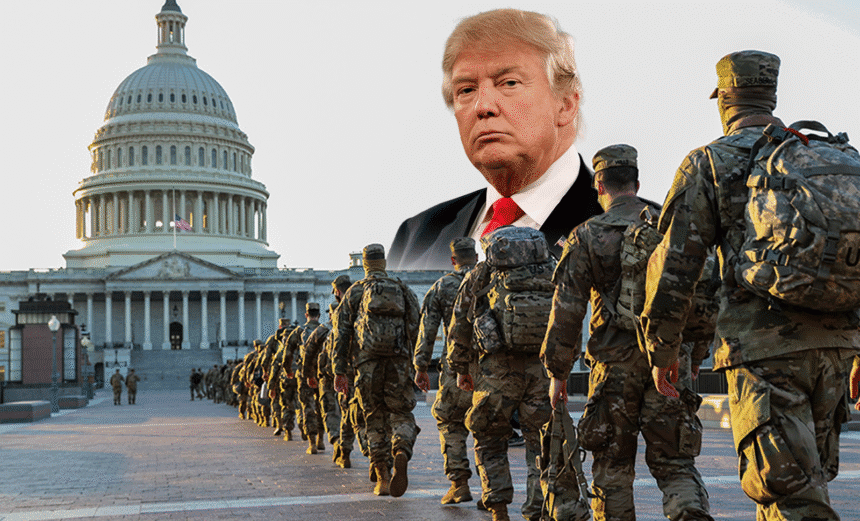President Donald Trump has initiated a significant federal intervention in Washington, D.C., by deploying approximately 800 National Guard troops and federalizing the Metropolitan Police Department. This unprecedented move, announced on August 11, 2025, aims to address what the president describes as a “crime emergency” in the nation’s capital, despite official crime statistics indicating a decline in violent crime over recent years.
The deployment began on August 12, with National Guard units arriving in the city and taking positions near landmarks such as the Washington Monument and the National Mall. The troops are operating under Title 32 authority, allowing them to assist local law enforcement without directly engaging in law enforcement duties. However, Defense Secretary Pete Hegseth clarified that while the Guard will not engage in routine policing, they can temporarily detain suspects if local police are unavailable.
President Trump has pledged to make Washington “crime-free,” stating, “We’re going to be essentially crime-free. This is going to be a beacon, and it’s going to also serve as an example of what can be done.” He has also expressed intentions to seek a “long-term extension” of federal control over the city’s police force beyond the initial 30-day period, which is permissible under the District of Columbia Home Rule Act.
The federalization of the D.C. police and the deployment of National Guard troops have sparked controversy. Critics argue that the move is politically motivated, citing declining crime rates in D.C. over recent years. Mayor Muriel Bowser condemned the deployment, stating that it was “unsettling and unprecedented” and that the city’s limited home rule status left it vulnerable to federal intrusion. She also noted that Trump’s portrayal of the city was outdated and did not reflect current crime statistics.
In response to the deployment, Trump has pledged to make Washington “crime-free” and has indicated plans to seek a long-term extension of federal control over the city’s police force. He has also suggested that other Democratic-led cities may undergo similar interventions. The deployment has raised legal concerns, particularly regarding the Posse Comitatus Act, which limits the use of federal military personnel in domestic law enforcement. While the National Guard is typically under state control, the federalization of the D.C. police and the deployment of National Guard troops have prompted questions about the constitutionality of these actions.
As the situation develops, residents and visitors in Washington, D.C., are advised to stay informed through official channels and to comply with any guidance from law enforcement authorities. The deployment of National Guard troops and the federalization of the police department represent a significant shift in the governance of the nation’s capital, with potential implications for the balance of power between federal and local authorities.












